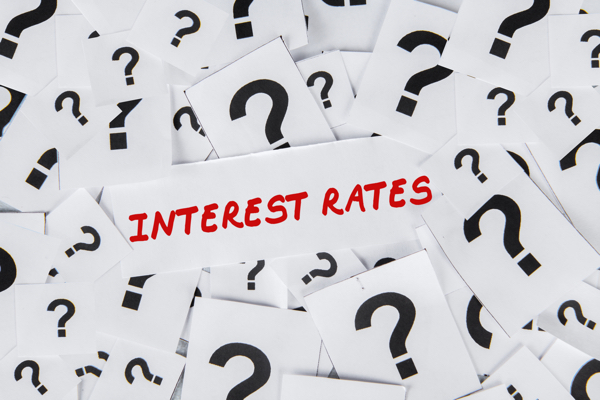In Part 3 of HOTELS series on how higher interest rates might impact dealmaking, the discussion turns to required leverage, the state of CMBS financing, lender selectivity, rate forecasts and potential winners and losers in this environment.
In the two previous days, HOTELS talked to its panel of experts about the broader implications of higher rates on M&A, as well as its impact on bid-ask spreads and more. Click here to read Part 1 and click here for Part 2.
Again, read what brokers, owner/developers, analysts and consultants said in early July about these hot button questions. Among our sources for this story are Kevin Davis, JLL Hotels & Hospitality Group; C. Patrick Scholes, Truist Securities; Flip Maritz, Broadreach Capital Partners and Maritz, Wolff & Co., Brandon Tarpey of M Development; Carlos Rodriguez Sr., CEO of Driftwood Capital; and John Fareed, global chairman, Horwath HTL.

H: How will higher interest rates impact leverage?
Davis: Some lenders have not reduced leverage, while others have lowered leverage by 5 points across the capital stack.
Tarpey: The high leverage debt funds are pulling back, so we’ll see an increase from the banks transacting at conservative leverage points. We’ll also see a significant amount of high-rate preferred equity layered into deals for sponsors to close on a transaction.
H: How would you describe the state of CMBS?
Davis: Hotel CMBS credit spreads continue to be extraordinarily wide, near post-COVID peaks. While that market is open, CMBS lenders will not take any principal risk so borrowers literally will not know their pricing until the deal closes and the bonds are sold. This dynamic makes it difficult to rely on CMBS for an acquisition, unless the bank is willing to provide a firm commitment. However, in the current environment, my sense is that the banks will avoid issuing a firm commitment unless it’s for their best clients, and even then, the commitment will contain a significant amount of pricing flexibility.
Tarpey: With the state of the market owners need flexibility. I don’t see any reason to consider locking in CMBS at these levels.
H: How are higher rates impacting lender selectivity?
Davis: Lenders have become much more selective, particularly the banks. Bank loans are the hardest to obtain in the current market and most banks are focusing on existing clients and/or their best clients. We’ve been told by at least one major hospitality bank lender that they are pausing on new hospitality loans for the time being. Because some of the banks are slowing down, it has caused many of the debt funds to slow down because they rely on the banks for credit lines and for syndicating senior loans. Bank selectivity has definitely had a ripple effect on the broader hospitality lending universe.
Fareed: For many of our clients, it’s becoming a search for the most creative lender who has a strong understanding of the industry and some flexibility regarding where they are willing to sit in the capital stack. For this reason, private lenders are becoming more and more attractive. We have encouraged our clients in need of capital to move quickly, try to stay ahead of rate hikes, or even go back to their current lenders to try to secure an extension.
Tarpey: I see sponsors focusing on existing lender relationships, who have successfully executed on business plans together. This is not the market to get cute and over shop financing.
H: How high will rates go, and for how long?
Davis: We could easily end this year with 6.5% to 7% rates for low-leverage bank deals and high single digit rates for all other deals, which are coupons that we haven’t seen since the dark days of the global financial crisis. I do believe that credit spreads will begin to compress quickly after the Fed has phased in the rate increases this year.
Most of the debt fund lenders are solving for absolute returns and as the index goes higher, they can hit those returns through the index and with lower credit spreads.
The markets are forward looking and once there’s a sense that inflation is under control, credit spreads will come in meaningfully and we will return to a more normalized loan coupon environment, even if the index remains high.
Tarpey: The only thing we know is rates are not going back down in the near term. As a buyer, focus on a cost basis that you’re comfortable owning through any environment.

Fareed: We expected the Federal Reserve to raise rates by another three-quarters of a percentage point, if not a full point, in late July. Hopefully, that will be the end of it for this year, which would allow a clearer picture of its impact on inflation before taking further action. Seeing the landscape beyond that, in terms of how high rates may go, or for how long, isn’t possible in the current environment.
H: Where can high rates create an advantage, and for who?
Davis: The high rates create an advantage for REITs and high net worth capital, which groups are not necessarily reliant on the mortgage financing market to acquire assets and/or achieve their targeted returns. The flipside is that REIT share prices are down, which could dampen their appetite for deals.
Right now, the mezz part of the capital structure is the most liquid, but that’s because it’s wildly mispriced. Mezz lenders are demanding loan spreads that are not much lower than where they’ve been historically, but the index is up over 2% since March and is heading higher. As a result, many of the mezz lenders are quoting spreads that result in low/mid-teens coupons for 60% to 75% of the cap stack for existing assets. That’s a core-plus/value add level of return for moderate leverage debt risk – that trade won’t last.
Tarpey: Buyers’ not reliant on any type of financing will have a significant advantage in transacting at a lower basis, purely by giving the seller confidence in execution.
We may also see unique hotel and resort opportunities that will come on the market due to sellers raising liquidity.
Rodriguez: It creates an advantage for existing hotels with locked-in interest rates for a long period of time.
Maritz: It will be an advantage for those with equity or access to bridge financing (i.e., deep pockets, longer term horizon).
